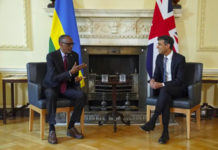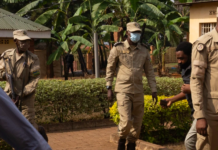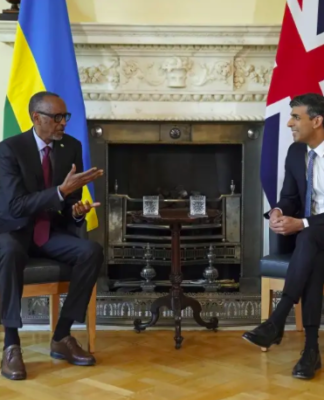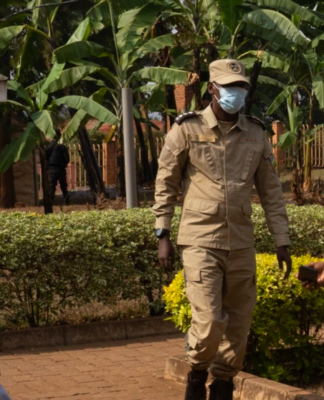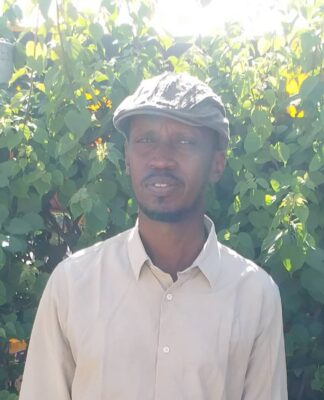KIGALI (Reuters) – Rwanda’s economy was on track to meet a 7.7 percent growth forecast in 2012, lower than the previous year, and plans to issue a diaspora bond before the end of the year, the country’s central bank governor said on Tuesday.
The landlocked central African nation said growth this year would ease from the 2011 gross domestic product of 8.6 percent.
The tiny central African nation has escaped the worst of soaring inflation and weakening currencies that hit its larger neighbours in east Africa last year, such as Uganda and Kenya, because agricultural production kept food prices down and policies such as removing fuel import duties.
Rwanda’s economy maintained its performance in the first half of 2012 and in line with annual real GDP growth projected at 7.7 percent in 2012 from 8.6 percent in 2011, the National Bank of Rwanda Governor Claver Gatete said in a statement.
The International Monetary Fund (IMF) has said Rwanda’s strong economic growth is expected to continue in a range of between 7.5 to 8 percent in the next two years, driven by the key agriculture sector, as well as industry and services.
Gatete said Rwanda has been planning to issue the bond which it mentioned late last year, and said the bond would bring much needed foreign capital.
The bond will be issued once it receives a green light from the ministry of finance, he told reporters.
“We have been working at the central bank for almost nine months to see how we can come up with a diaspora bond…. We think it will not only increase the resources but also bring in the foreign capital as well,” he told reporters, without giving details on the bond.
“We believe that by the end of the year, if it’s accepted, then it can be rolled out.”
Gatete said the central bank had visited many countries, including Ethiopia, Kenya, even India, and consulted many others, and was almost ready to issue the bond.
“If it is a bond that is acceptable and we agree on the terms and also how it is going to be used, then we can make it public,” he said, adding that it was “nearing completion”.
On the aid cutbacks by Western powers, Gatete said he was “not worried” because the bulk of financial assistance to Rwanda was intact, and the country was also getting revenues from tourism, which had been increasing significantly.
The United States has cut military aid for this year while the Netherlands, Germany and Britain have followed suit, but Rwanda has contested the report’s findings that it was supporting armed groups.
“The money that we are talking about is quite a small amount of money,” he said.
“So for us, on that one, we are really not concerned. We would be concerned if all the budget support and all the collaterals would be stopped. But this is not the case. So we are not worried.”
Jenny Clover

